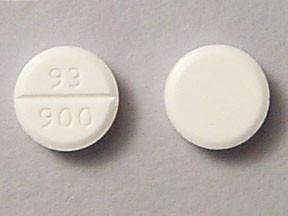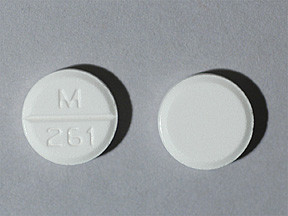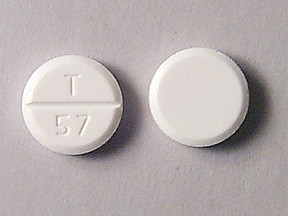KETOCONAZOLE - ORAL
PHONETIC PRONUNCIATION: (kee-toe-CON-uh-zole)
COMMON BRAND NAME(S): Nizoral
GENERIC NAME(S): ketoconazole
Uses
USES: See also Warning section. Ketoconazole is used to treat certain serious fungal infections in the body. Ketoconazole belongs to the class of drugs called azole antifungals. It works by stopping the growth of the fungus. Ketoconazole should not be used to treat fungal infections on the skin and nails due to the risk of serious side effects and drug interactions. Talk to your doctor about other medications you can use to treat these types of infection.
How to use KETOCONAZOLE - ORAL
HOW TO USE: Read the Medication Guide provided by your pharmacist before you start taking ketoconazole and each time you get a refill. If you have any questions, ask your doctor or pharmacist. Take this medication by mouth as directed by your doctor, usually once a day. This medication may be taken with or without food, but taking it with food helps to reduce stomach upset. If you are taking an antacid, take ketoconazole at least 2 hours before or 1 hour after taking the antacid, otherwise ketoconazole may not be absorbed into the body. See also Drug Interactions for more information. The dosage and length of treatment is based on your medical condition, response to treatment, and other medications you may be taking. Be sure to tell your doctor and pharmacist about all the products you use (including prescription drugs, nonprescription drugs, and herbal products). In children, the dosage is also based on weight. It may take from several days to several months to complete treatment. This medication works best when the amount of medicine in your body is kept at a constant level. Therefore, take this drug at evenly spaced intervals. To help you remember, take it at the same time each day. Continue to take this medication until the full prescribed amount is finished, even if symptoms disappear after a few days. Stopping the medication too early may result in a return of the infection. Tell your doctor if your condition persists or worsens.
Side Effects
Precautions
Interactions
Overdose
Images
Reviews
Faq for KETOCONAZOLE - ORAL
- Ketoconazole - Oral is used to treat various fungal infections, including yeast infections in the mouth, throat, and esophagus.
- Ketoconazole - Oral works by inhibiting the growth of certain types of fungi, thereby preventing the spread of the infection.
- Common side effects may include nausea, vomiting, stomach pain, headache, dizziness, or skin rash.
- Ketoconazole - Oral should be taken exactly as prescribed by your doctor. It is usually taken once or twice a day with food or with an acidic beverage, such as a non-diet cola.
- Yes, Ketoconazole - Oral may interact with certain medications, such as blood thinners, antacids, rifampin, or certain antidepressants. It is important to inform your doctor about all the medications you are taking.
- The duration of treatment can vary depending on the type and severity of the infection. Improvement is usually seen within a few days to a week, but it is important to complete the full course of treatment prescribed by your doctor.
- It is generally recommended to avoid alcohol while taking Ketoconazole - Oral, as it may increase the risk of certain side effects such as liver damage.
- Ketoconazole - Oral is generally not recommended during pregnancy or breastfeeding, as it may harm the baby. It is important to consult with your doctor before taking this medication.
- If you miss a dose, take it as soon as you remember. However, if it is close to the time for your next dose, skip the missed dose and continue with your regular dosing schedule. Do not take a double dose to make up for a missed one.
Warning
WARNING: Ketoconazole can cause serious (possibly fatal) side effects and drug interactions. Therefore, it should only be used when other treatments have not worked, are not available, or cannot be taken by you. Discuss the risks and benefits of this medication, as well as other effective and possibly safer treatments for fungal infections, with your doctor. Ketoconazole has rarely caused very serious (possibly fatal) liver problems. Get medical help right away if you develop symptoms of liver problems, including persistent nausea/vomiting, stomach/abdominal pain, dark urine, yellowing eyes/skin, loss of appetite, or light colored stools. To reduce your risk for liver problems, your doctor should obtain liver function tests every week while you are taking this medication. Do not drink alcoholic beverages while taking ketoconazole because alcohol increases the risk of serious liver problems. See also Notes section. Ketoconazole must not be used with certain other medications because a serious, possibly fatal, drug interaction may occur. Ketoconazole interacts with drugs such as cisapride, disopyramide, dofetilide, dronedarone, methadone, pimozide, quinidine, ranolazine, among others. These interactions may increase the risk of a certain condition that affects the heart rhythm (QT prolongation). QT prolongation can rarely cause serious (rarely fatal) fast/irregular heartbeat and other symptoms (such as severe dizziness, fainting) that need medical attention right away. Tell your doctor and pharmacist about all the medications and products you may be taking before you start ketoconazole treatment. See also Precautions section.
Disclaimer
IMPORTANT: HOW TO USE THIS INFORMATION: This is a summary and does NOT have all possible information about this product. This information does not assure that this product is safe, effective, or appropriate for you. This information is not individual medical advice and does not substitute for the advice of your health care professional. Always ask your health care professional for complete information about this product and your specific health needs.



No Reviews Yet